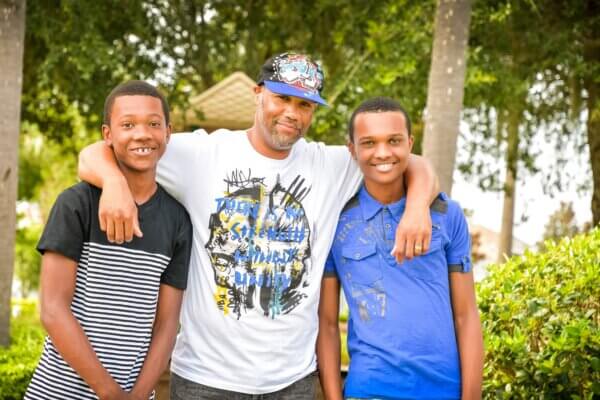How to motivate teens and tweens

How do we motivate adolescents?
Sometimes it feels like nobody wants to help around the house, nobody wants to clean their room. I know, I’ve been there! We work and work on our relationship with our kids- it’s ongoing. It’s a practice of connecting, creating and tweaking agreements, problem solving, checking in, and finding solutions. How do we motivate our teens?
Don’t take individuation personally
It can be so hard to connect during the teen years. It can feel like they don’t want anything to do with us. I’ve been there where it feels like they don’t want to talk to us, or we only get one word answers. Sometimes it feels like anger and hurt is being thrown around, but trust me on this, teenagers want to be connected to their parents. They want an adult they can confide in who can handle what they’re bringing – the highs, the lows, and the sideways. They want someone to hold space for them. All relationships are complicated, but parent-teen relationships are particularly complicated because we’re dealing with teenagers who are still learning skills and working on individuation. Their perspective is slowly broadening, and we, the adults, already have our perspective. Sometimes we think we know everything and see the world the way it is. But you see the world the way you see the world. It’s a mis-match, and we forget that we’re coming from a different place. Our teens are still in development and it makes a complicated dynamic. As adults, we have to be on our best behavior. We have to be willing to look at things from their shoes. Well-intentioned, loving parents who try to offer support, help, direction, and a little pressure can come across to adolescents like you don’t think they’re capable.
Another tough thing between ourselves and our teenagers is that we take their individuation process personally. They push away, and we feel hurt. Sometimes they take really scary risks. They’re wired to push away and turn towards friends. They’re wired to push against the status quo and seek out novelty. We mean well, but our offers of support can feel really invalidating to our teens. Sometimes they don’t think we can handle what they’re going through. They’re going through a lot with Covid, the political fighting, climate change, isolation, and not going to school in-person. It’s scary right now; they’re handing a lot.
How do we break down this armor that builds up?
This complicated dynamic and the individuation process can build up armor between us in our relationship. How do we break it down? We have to have human-to-human conversations. Close your mouth, listen, and keep showing up for them. Ask questions, be curious, and trust your kids. Let them know that you trust them, and leave your judgment at the door. Have a life outside of your kids! Let go of your idea of how things might look. I had to really let go of what I thought was a standard situation – high school, college, and a traditional path for my daughter. I didn’t even realize how attached I was to that path until it was pulled out from me, and I couldn’t make sense of it for a while. Now I’m really glad I got to go through all of it, but it was really hard. I had to take care of myself and look for opportunities to have my own life.
We have to be able to communicate in a real way to motivate our kids, and we do that with human-to-human conversations. Cut through the judgment and the tension – it’s hard! It takes time. It’s not just one conversation or one week of this. You’ve got to commit to showing up for them regardless of how slowly they open up to us, but I promise they do want you in their life. They want to be seen by you. They want to know that what’s hard for them is accepted by you.
How do we allow them to feel the tension of the world?
We care about so many things so our kids don’t have to. To an adolescent, it can feel like we care more about their grades or chores than we care about them. It can feel like we care more about that stuff than how they’re doing in general. We rescue them last minute, too. We don’t follow through, we let their problems be our problems, and that doesn’t teach any skills. We have to focus on solutions instead.
Here’s an example of letting them feel the tension. If a teenager isn’t doing their own laundry, then they’re going to feel that tension when she needs something to wear. It might come with a meltdown. You can ask “Yeah, this sucks. What can you do so you have the clothes you want when you want them? Can I help you make a plan so this doesn’t happen again?” Stay on the sidelines with them and look at the problem together.
“I can see how this is a problem for you. How will you solve it?”
Things like chores, messy rooms, and laundry are low-risk ways for them to feel the tension. Getting worked up about their room or their chores isn’t teaching them skills, it’s just creating a battle. We want to teach skills, and skills show up when they feel the tension.
Chores are something we talk about weekly in my house. We make plans and we expect them to follow through. Sometimes they do, and sometimes they don’t. It’s an ongoing expectation that they’ll help out, so it’s not a power struggle when I ask them to do something. Revisit plans and agreements, gather information, and find out what’s getting in the way of your kids doing their chores. “Tell me about your bathroom. How do you want it to look? What do you notice? Do you have any questions? What’s hard?” Drop into curiosity – do they have the cleaning products they need? Do they need a deadline or a specific time of the week to do it? Have they never actually been shown how to clean the bathroom and need some tips and tricks? Find out what’s in the way so you can find solutions.
Difficult times are temporary
It’s easy to feel overly attached and connected to our kids’ behavior because it can feel as if our parenting is cause & effect, and in many ways it is, but also, our kids are individuals making their own choices. It’s slippery! Sticking with Positive Discipline during adolescence works, even though it can be difficult with teens. You’ll get to the other side and be connected again. Hang on, hang in there, and trust that things are going to be okay. Stay the course; difficult times are temporary.
Remember it’s your teen’s life. It might be challenging, but those challenges are preparing them. We don’t know the outcomes. Pull back a little bit, let them feel a little discomfort, fight for relationship, and connect.
Listen to this episode on the Joyful Courage podcast.





Comments